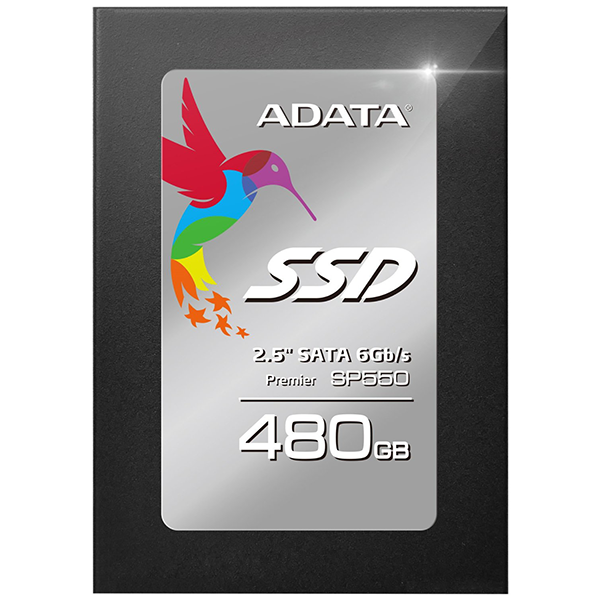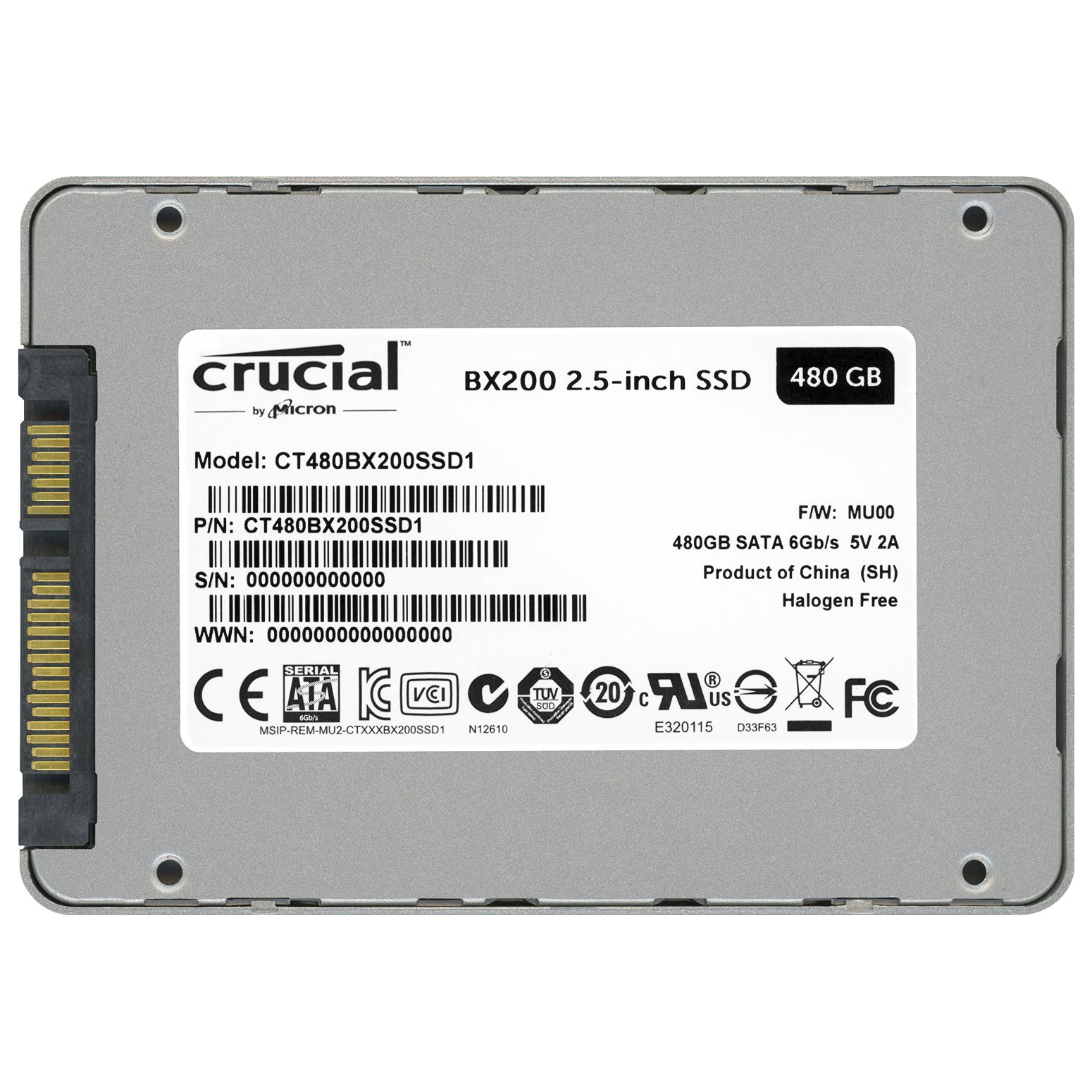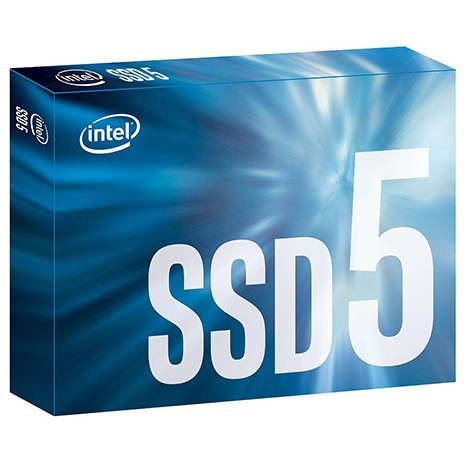Plextor M7V SSD Review
Plextor is back in the game with its M7V SSDs and we take a look at the entry-level M7V to see how it compares with other TLC-based SSDs.
Why you can trust Tom's Hardware
Product Tour And Performance
A Closer Look
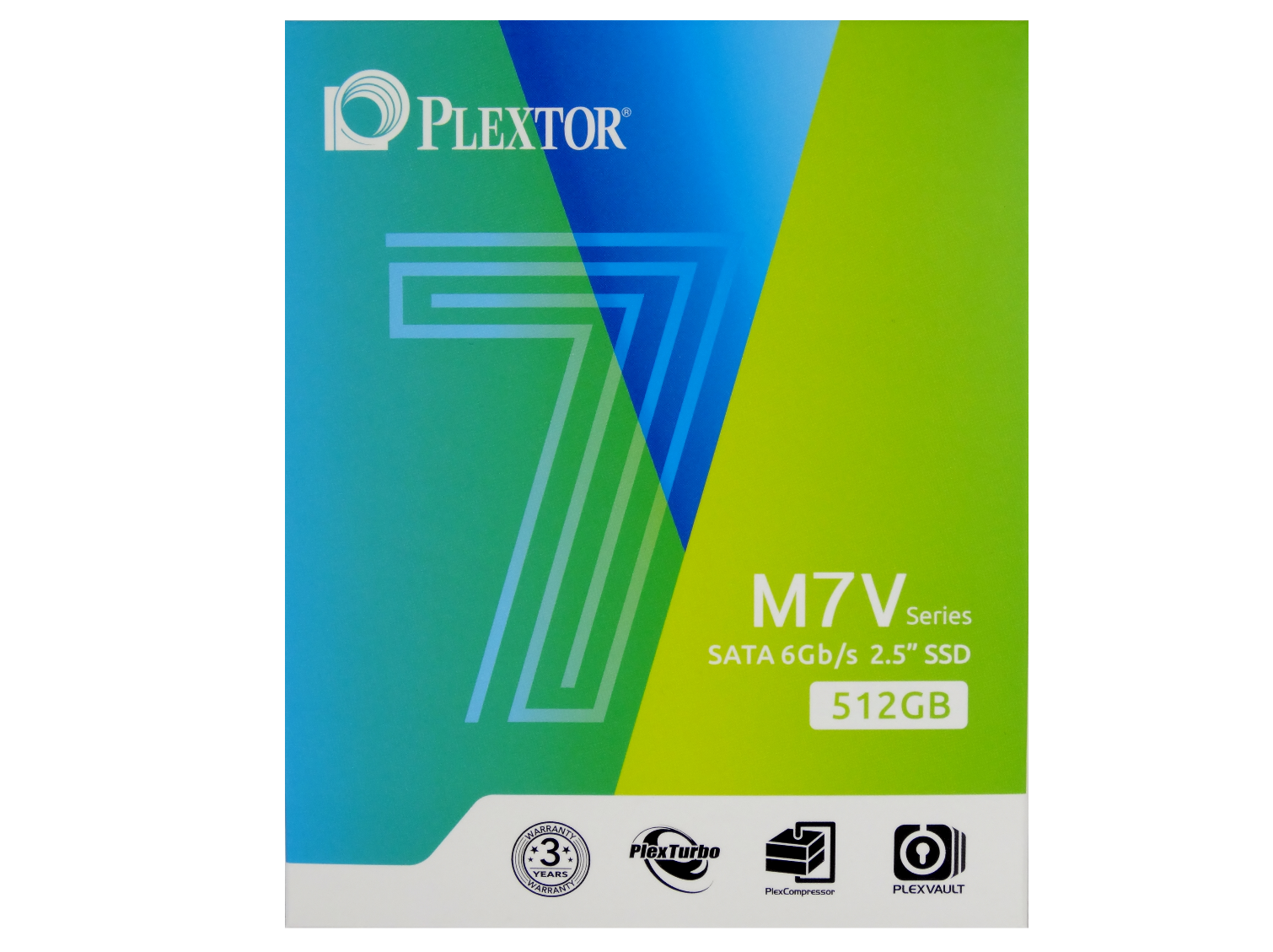
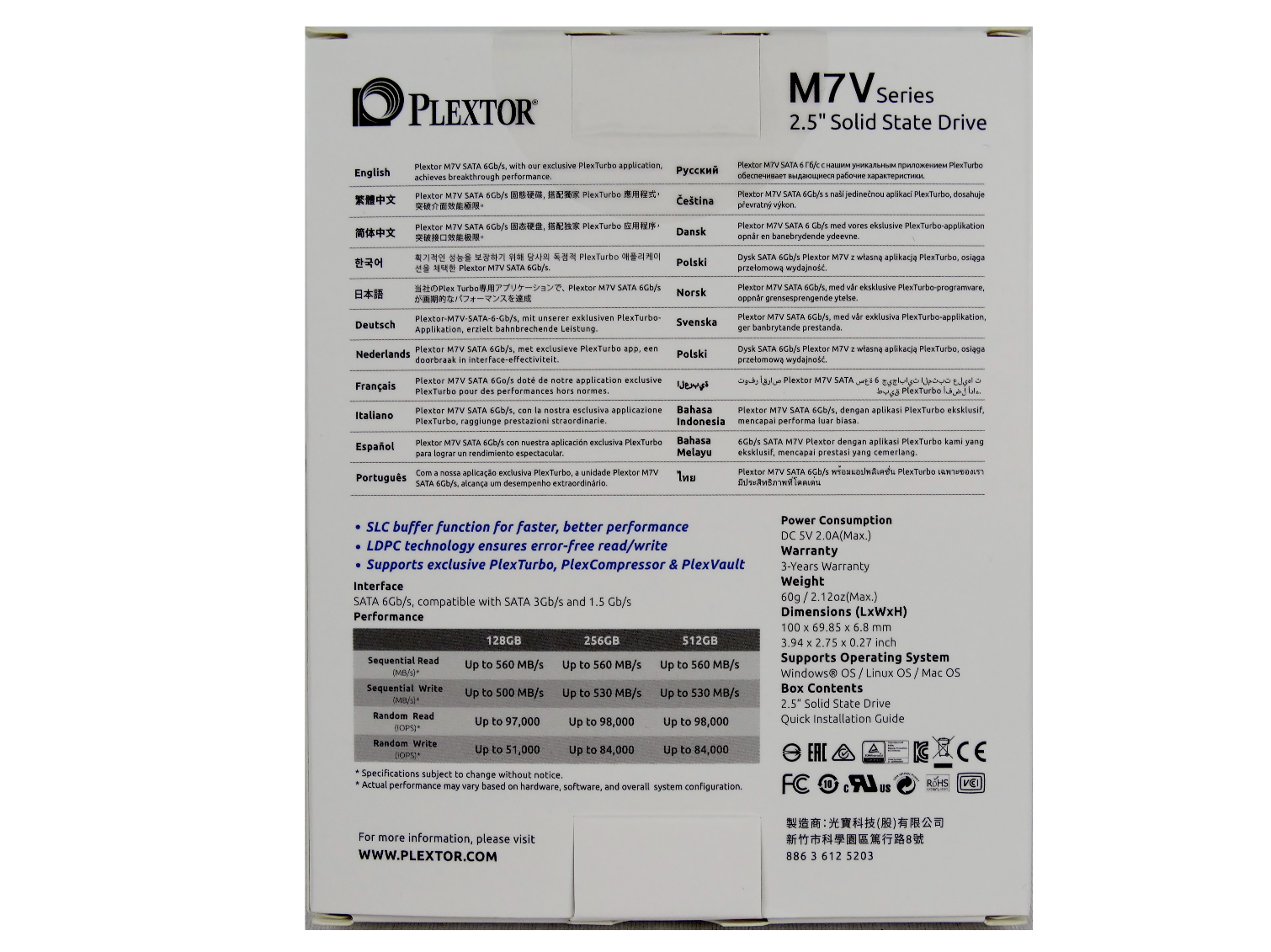
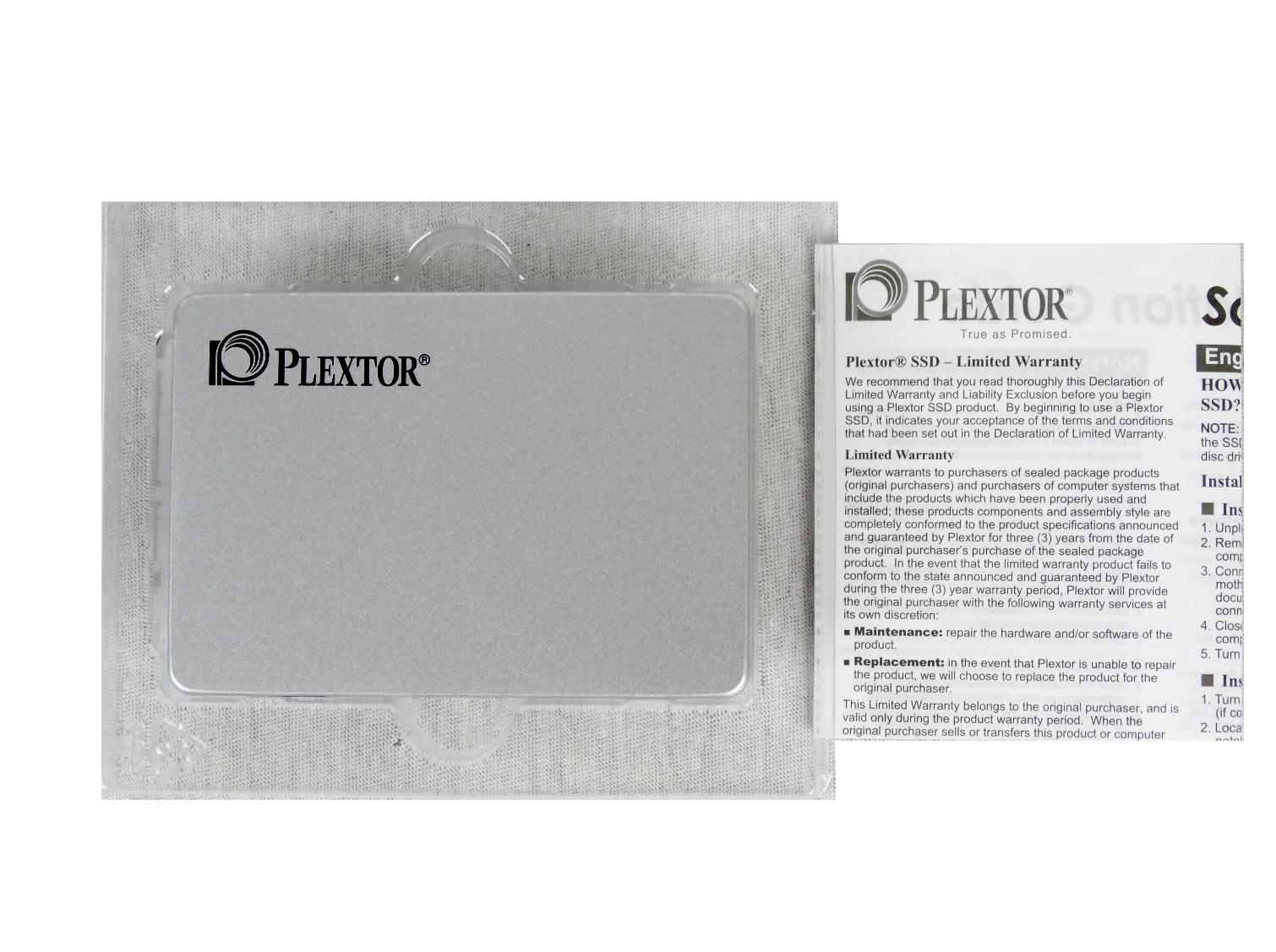
The M7V package is a radical departure from the 5- and 6-series products. Plextor uses a playful multicolored scheme on the front and lists the specifications on the back. We found performance information for all three capacities, a warranty statement and a brief description of the features. Inside the package, we found the drive secured in a plastic shell along with a paper warranty statement.
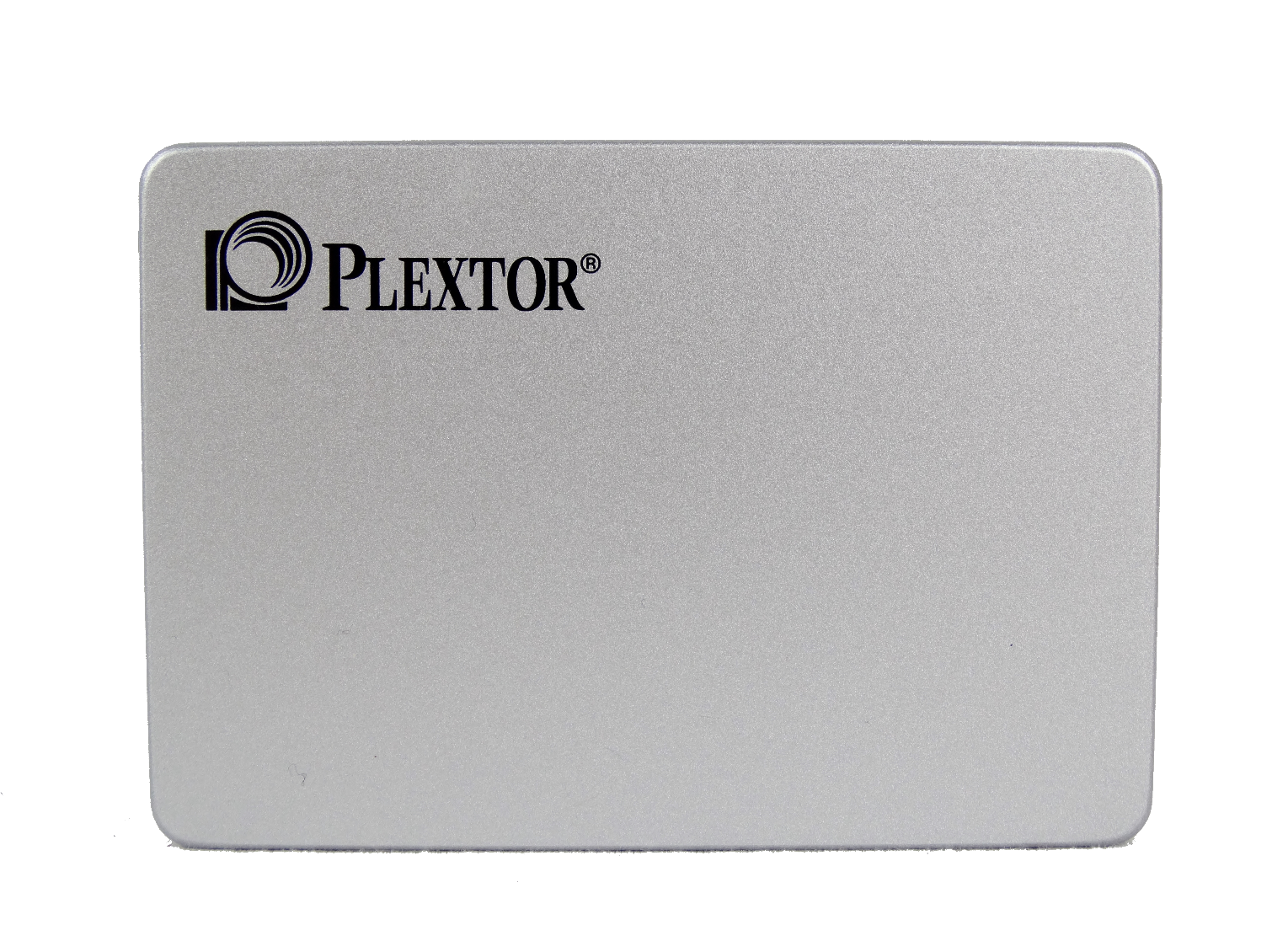
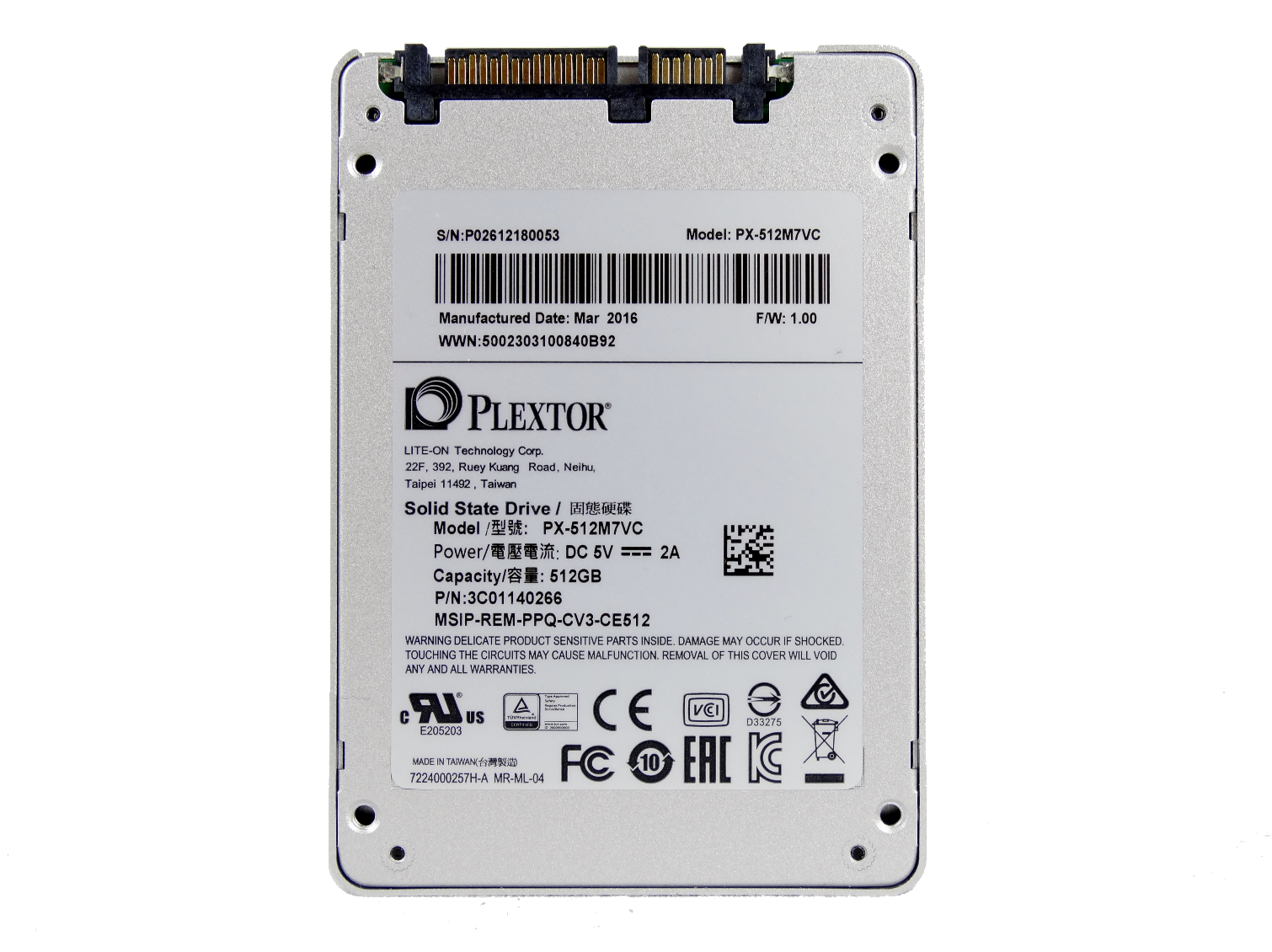
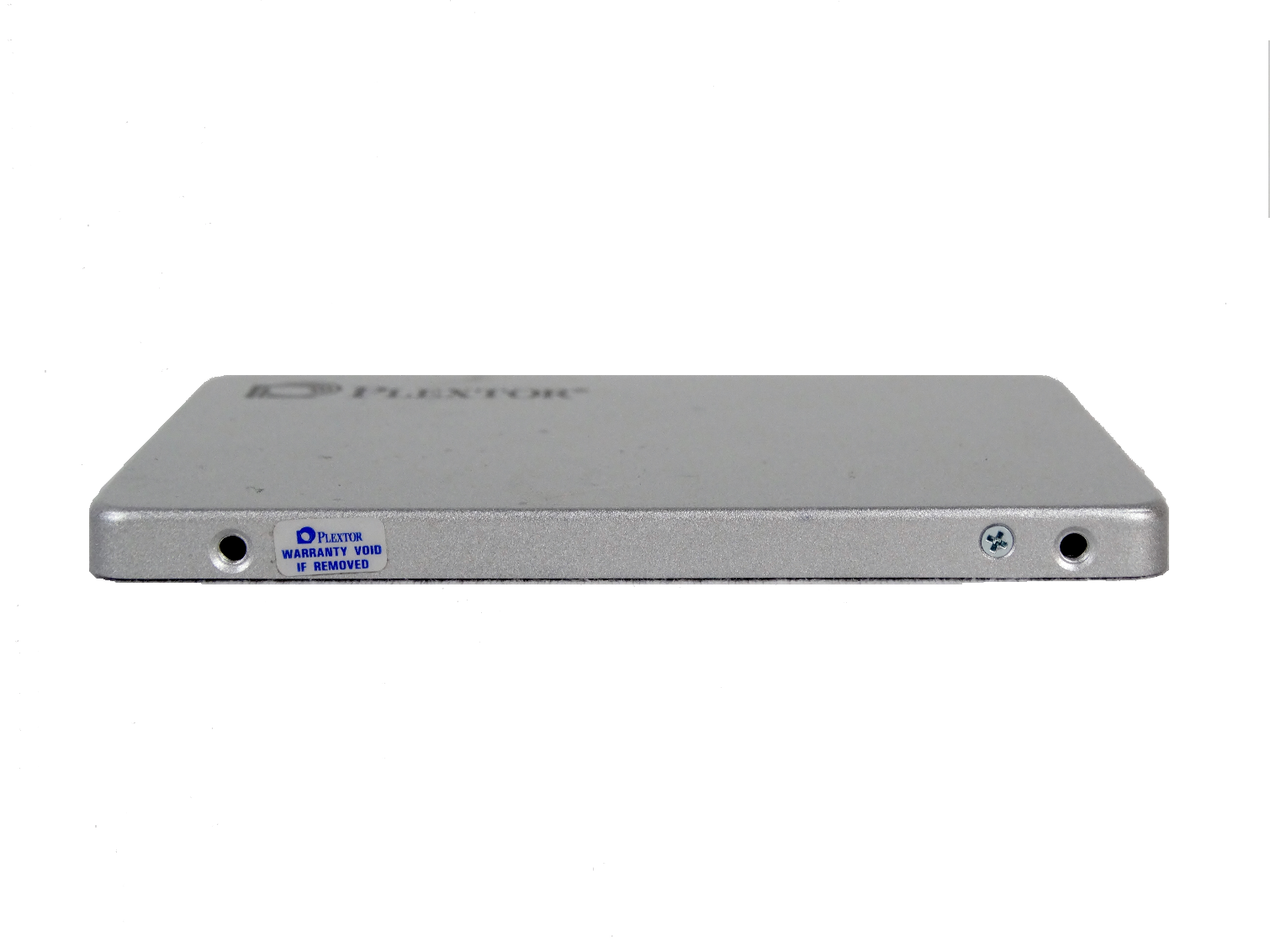
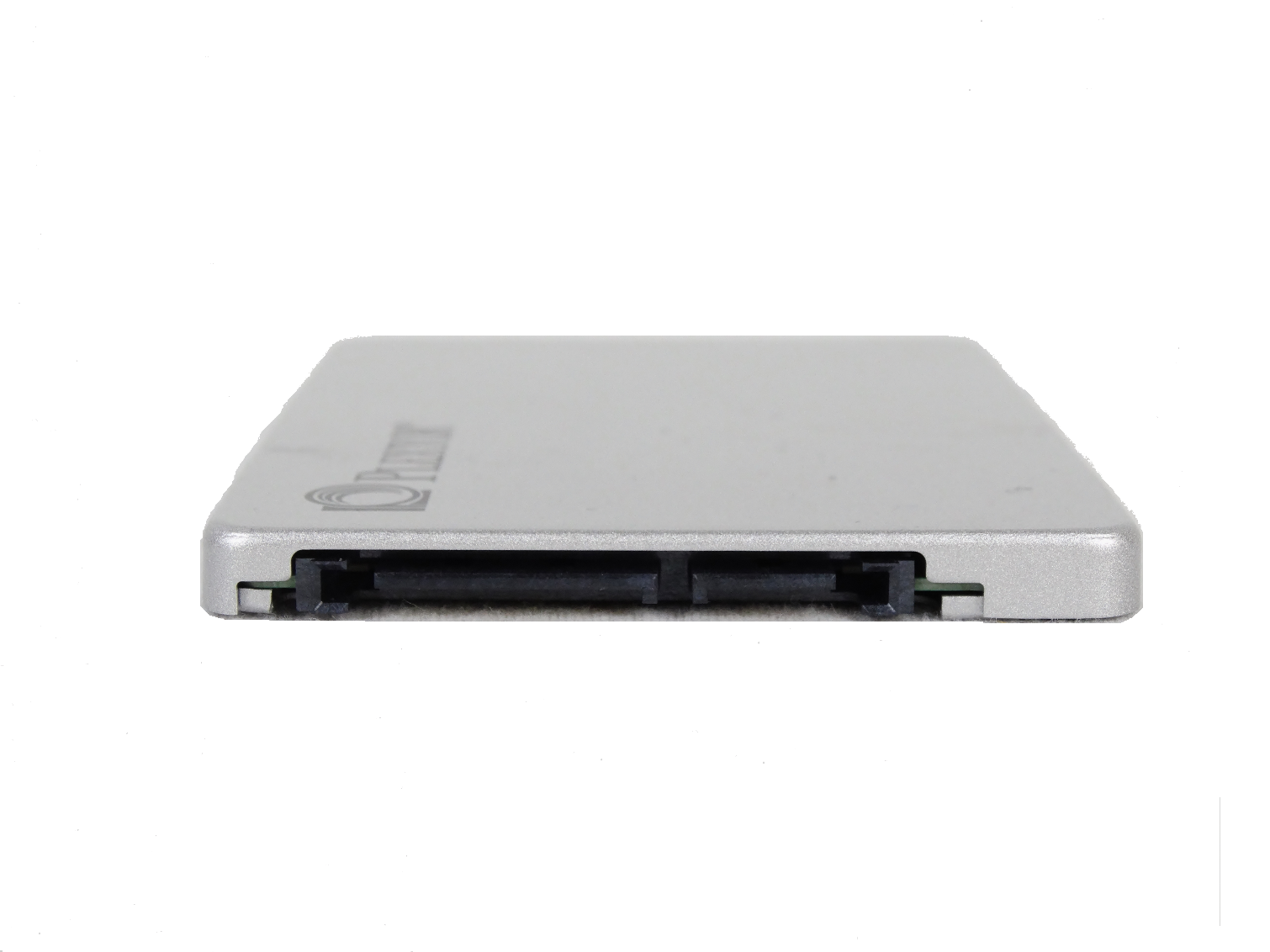
The M7V returns to a natural-brushed aluminum finish, which is in contrast to the M6 Pro, which shipped with a gold tone. The drive conforms to the thin 7mm Z-height (thickness), so it will fit in newer notebooks that require the slimmed-down design.
We found a special edition M7V at Newegg that has an anodized-red-brushed aluminum case instead of the aluminum case. We didn't see the red model on Plextor's website, but this is not the first undocumented special edition from the company, it also released a red special edition of the M6 in Japan last year.
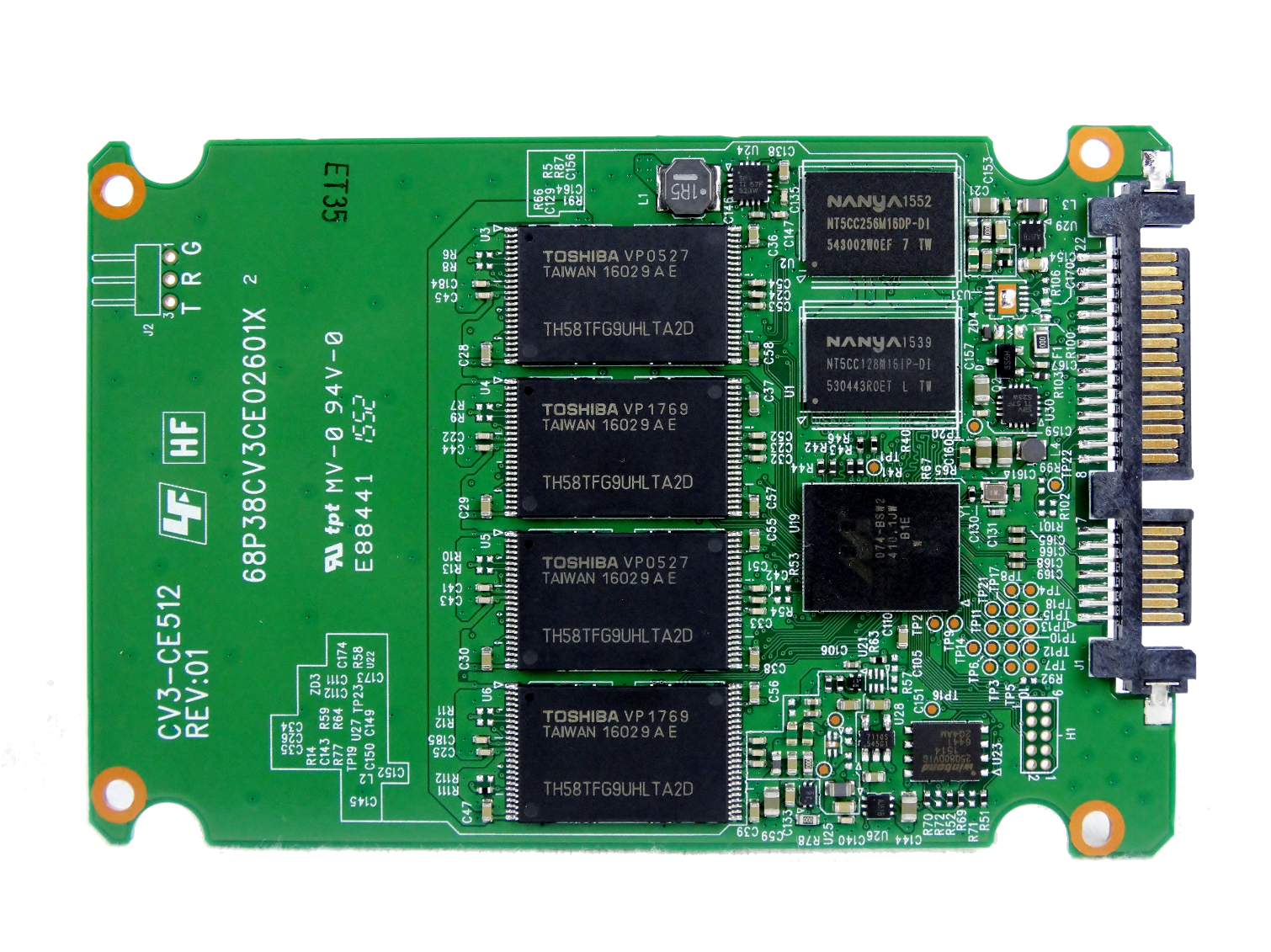
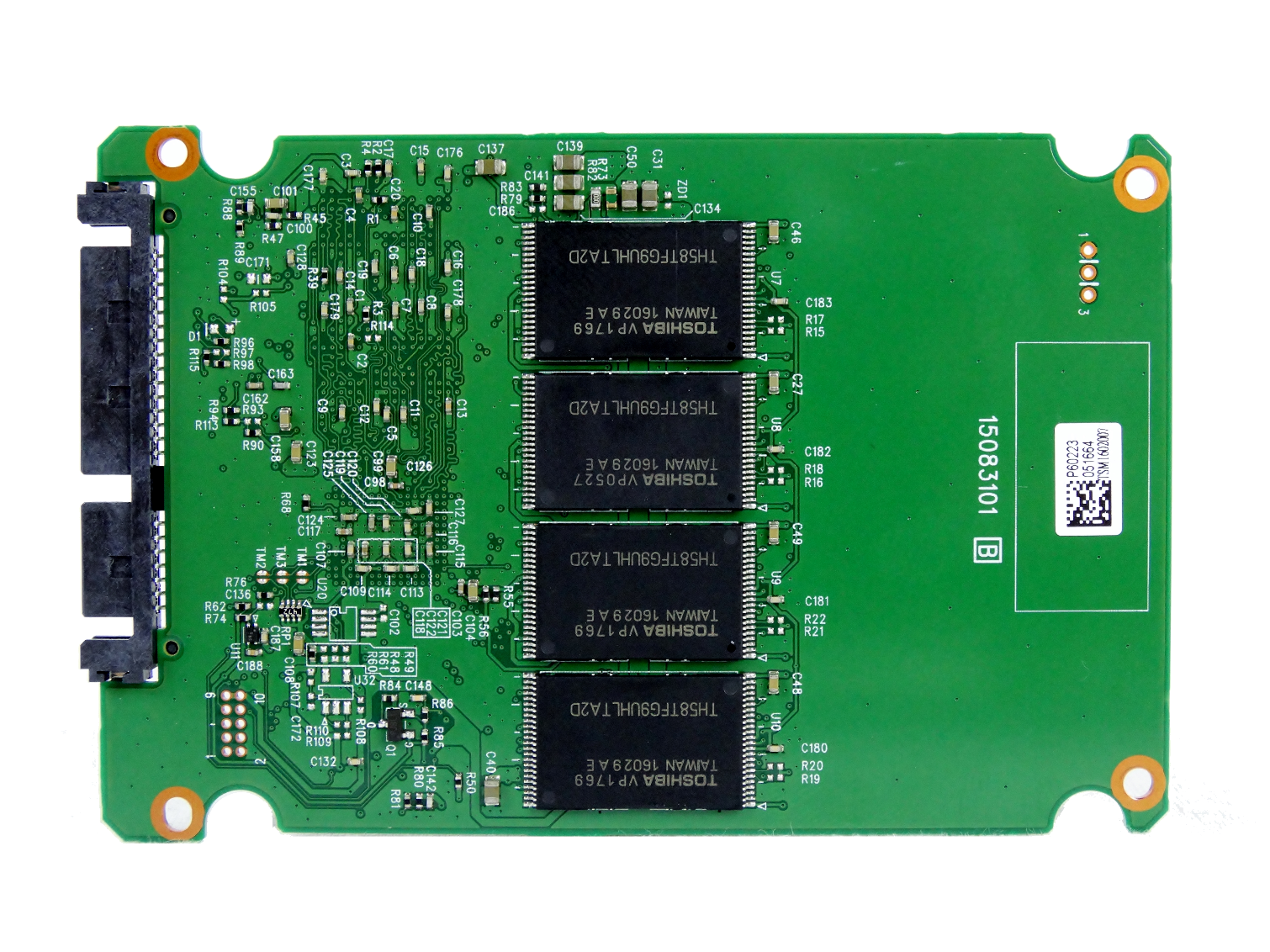
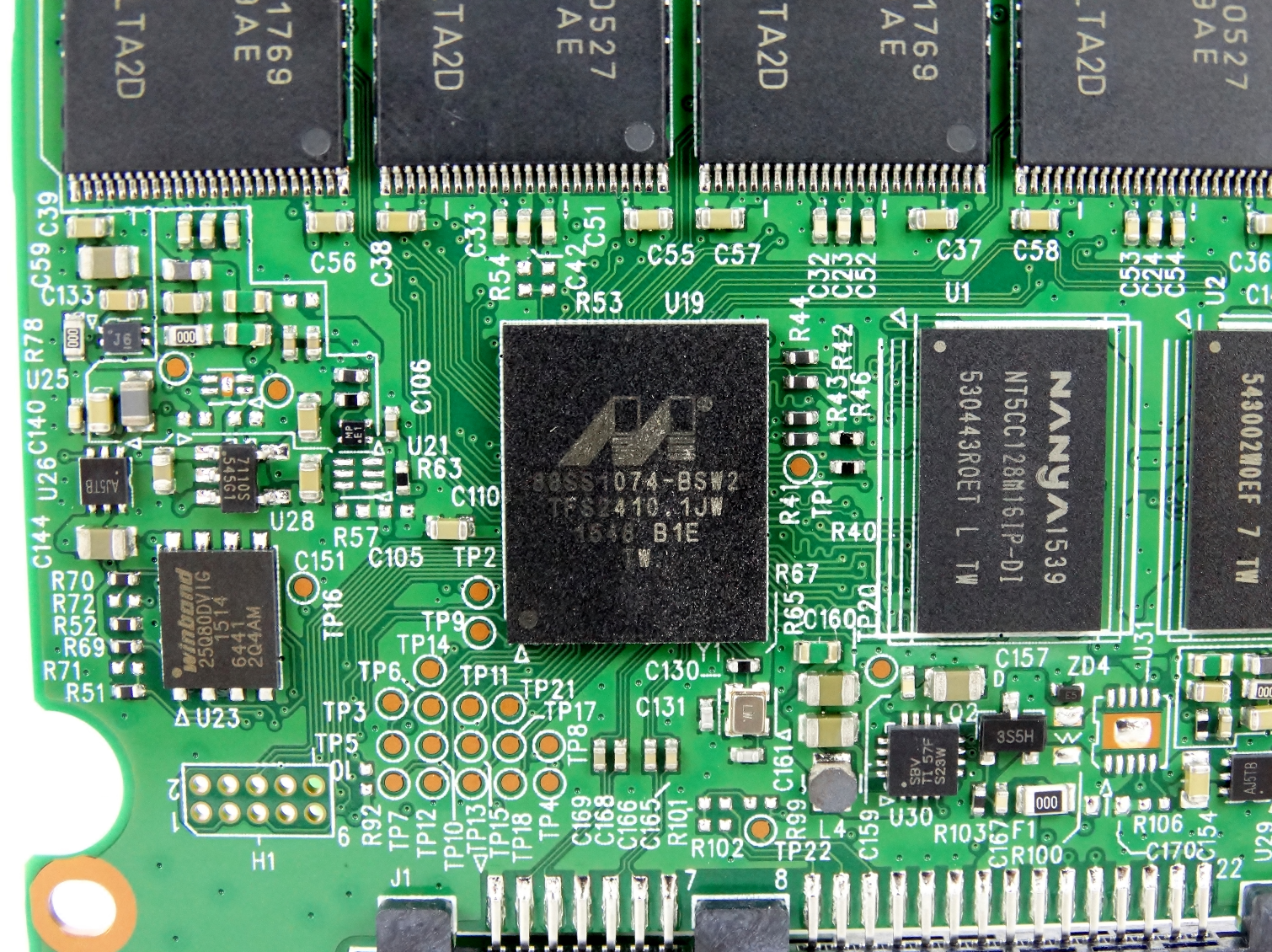
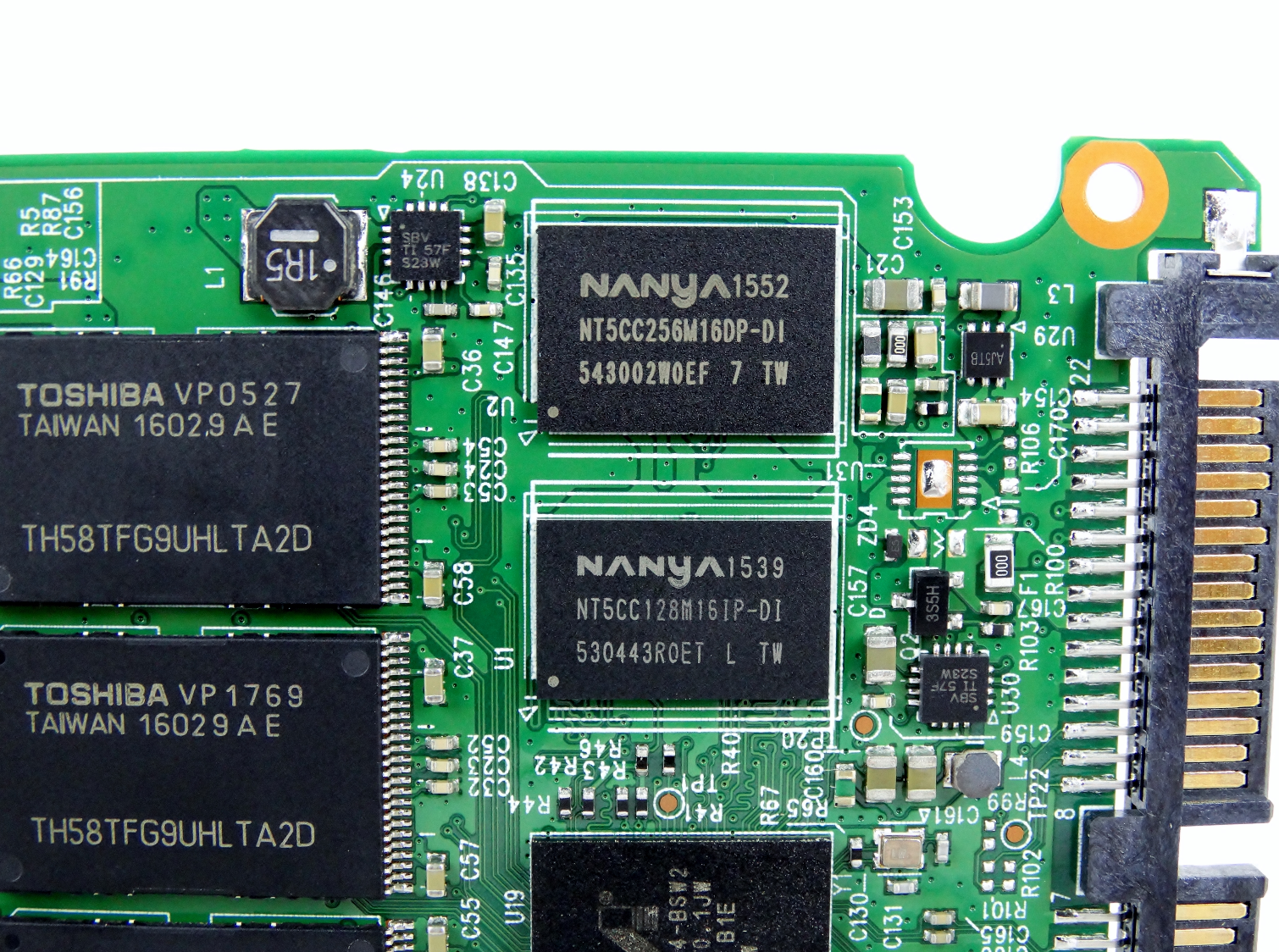
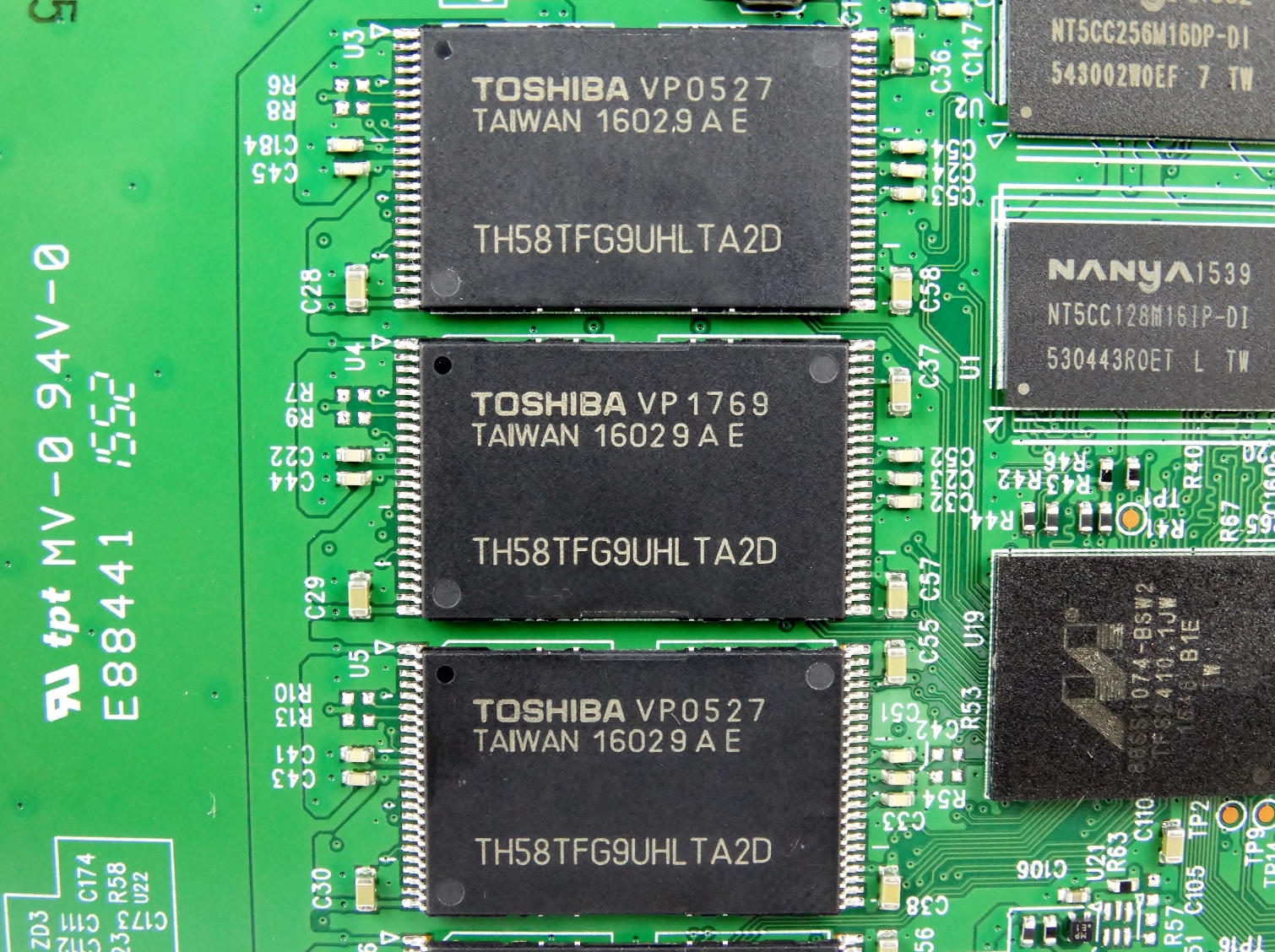
Inside the case, we found a Marvell Dean 4-channel controller, two Nanya DRAM packages and eight Toshiba flash packages filled with 15nm TLC 128Gbit die.
Comparison Products
We chose a mix of entry-level and mainstream SSDs to compare to the Plextor M7V. The Adata SP550, Crucial BX200, Mushkin Triactor, OCZ Trion 150 and the Samsung SSD 750 EVO make up the entry-level products. Their prices range from $109.99 to $120.99.
The mainstream products include the Intel SSD 540s, the new SK hynix SL308 with planar TLC and the industry-leading Samsung 850 EVO. The new SL308 starts the mainstream pricing at $129.99, and the Intel 540s sells for $149.99. The 850 EVO 500GB sells for $175.99 at Newegg and several other large resellers, but Walmart still lists the 850 EVO 500GB for $154.85.
You will notice that every product in the chart uses 3-bit-per-cell flash, which is only the second time we've removed all MLC products from an entry-level chart. MLC prices have shot up, taking retail SSD pricing with it. TLC flash is projected to achieve 80% market share by the end of 2016, which is an eventually that we've warned about for several months. Like it or not, now if you want MLC you have to pay a premium for it.
Get Tom's Hardware's best news and in-depth reviews, straight to your inbox.
To read about our storage tests in-depth, please check out How We Test HDDs And SSDs. Four-corner testing is covered on page six of our How We Test guide.
Sequential Read Performance
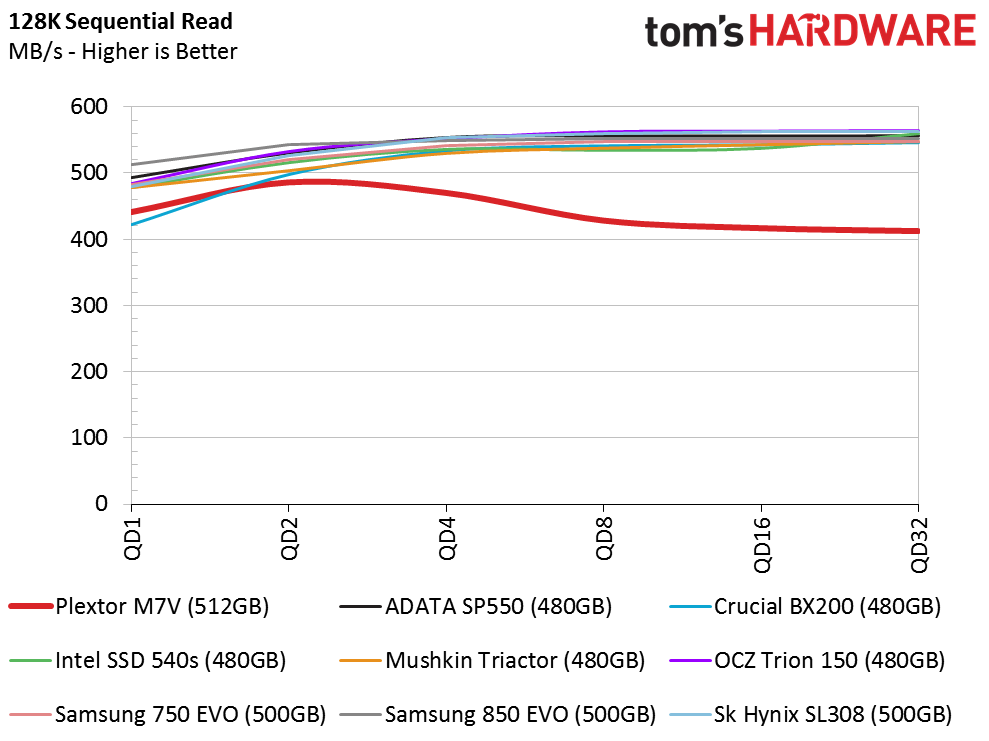
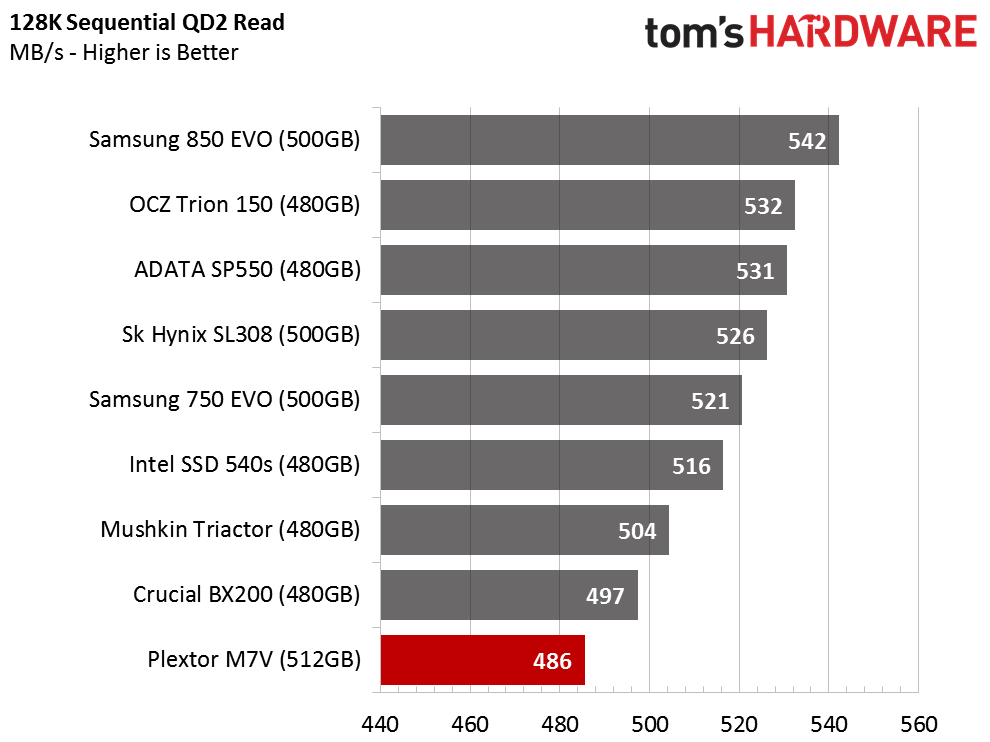
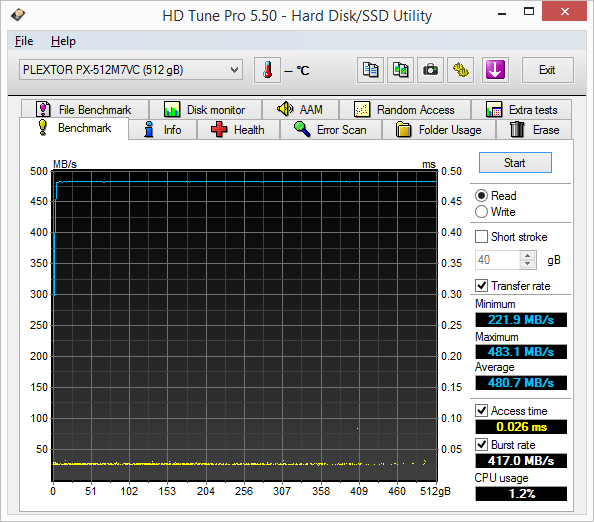
With most SSDs, we just gloss over this test with a simple statement about how well all of the drives read sequential data, but that's not going to happen this time because the sequential performance is quite a bit lower than Plextor's claim of 560 MB/s. The Plextor M7V peaks at 476 MB/s at a queue depth of two, and then slows down during the scripted test. We only achieved a maximum of 483 MB/s (with a single queue request for data) with HD Tune Pro running a 128KB workload across the entire user LBA range. We reached Plextor's claim of 560 MB/s of sequential read performance with ATTO and achieved 540 MB/s in CrystalDiskMark.
Sequential Write Performance
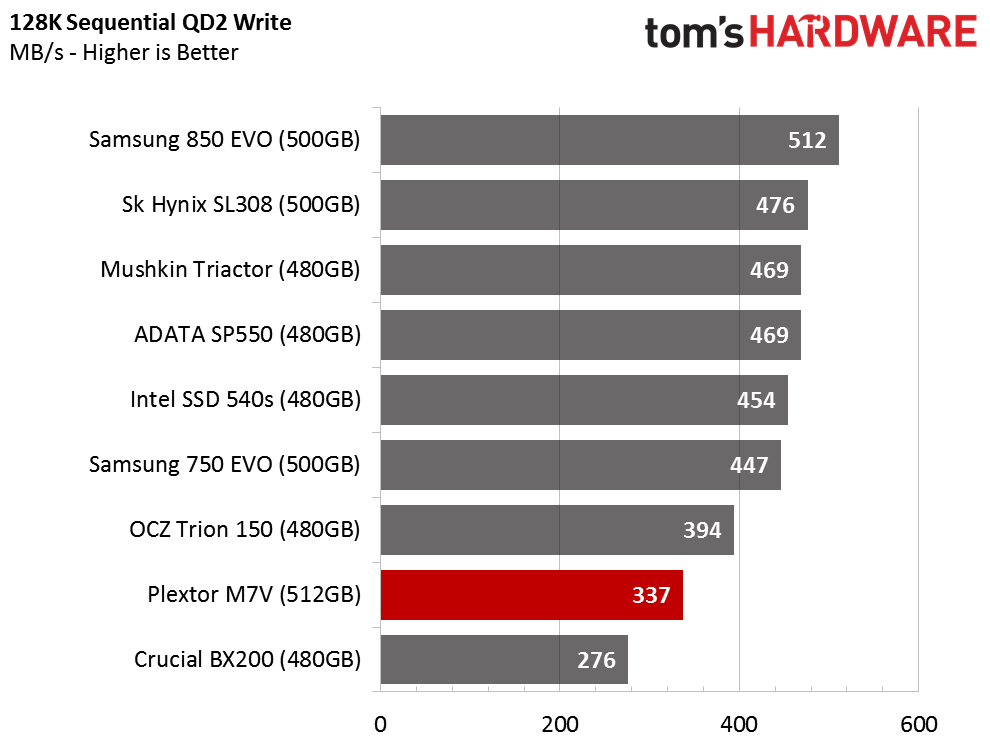
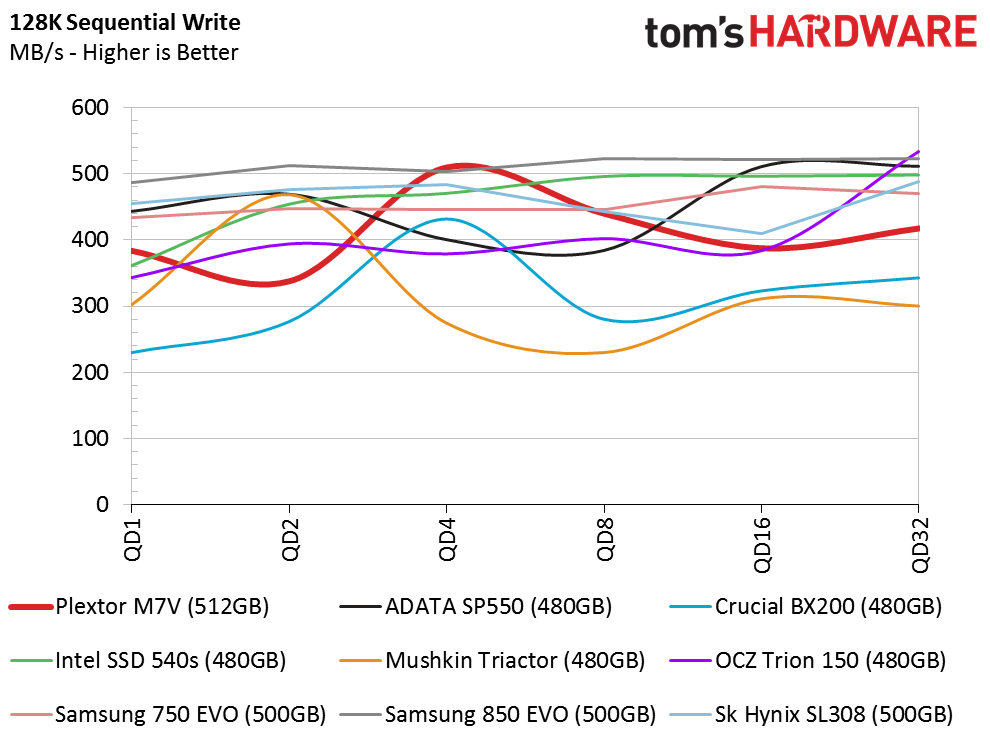
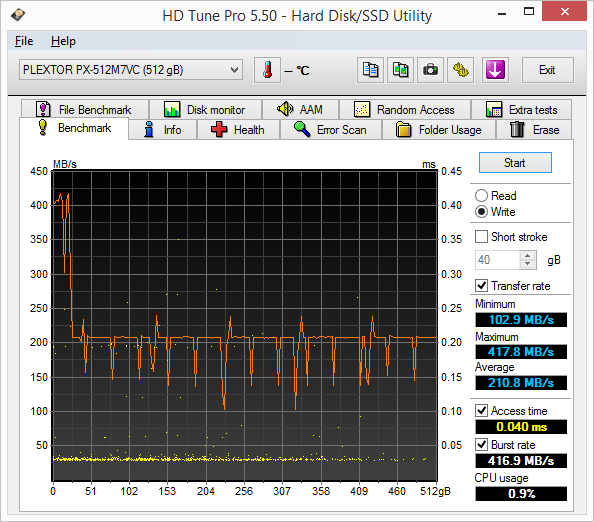
The Plextor M7V 512GB relies heavily on a small SLC-programmed buffer area that absorbs data written to the drive. Most daily tasks write only small pieces of data, so the fast buffer soaks up the data. The SSD slows to just over 200 MB/s when you need to transfer a large file to the drive, or if you write more data than the buffer provides.
Random Read Performance
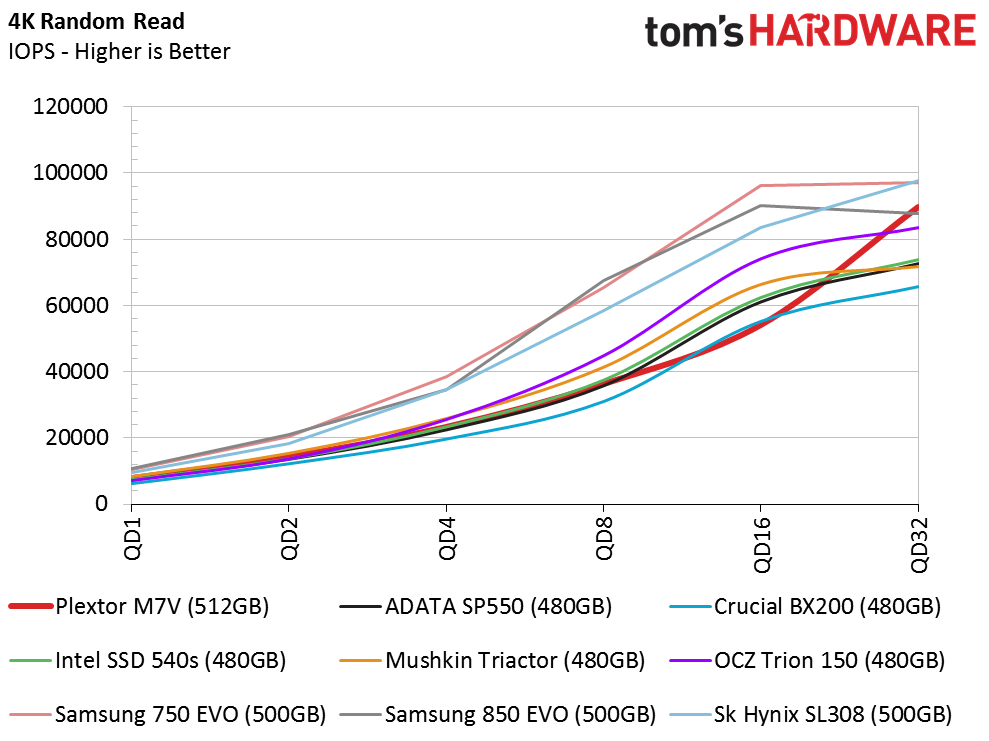
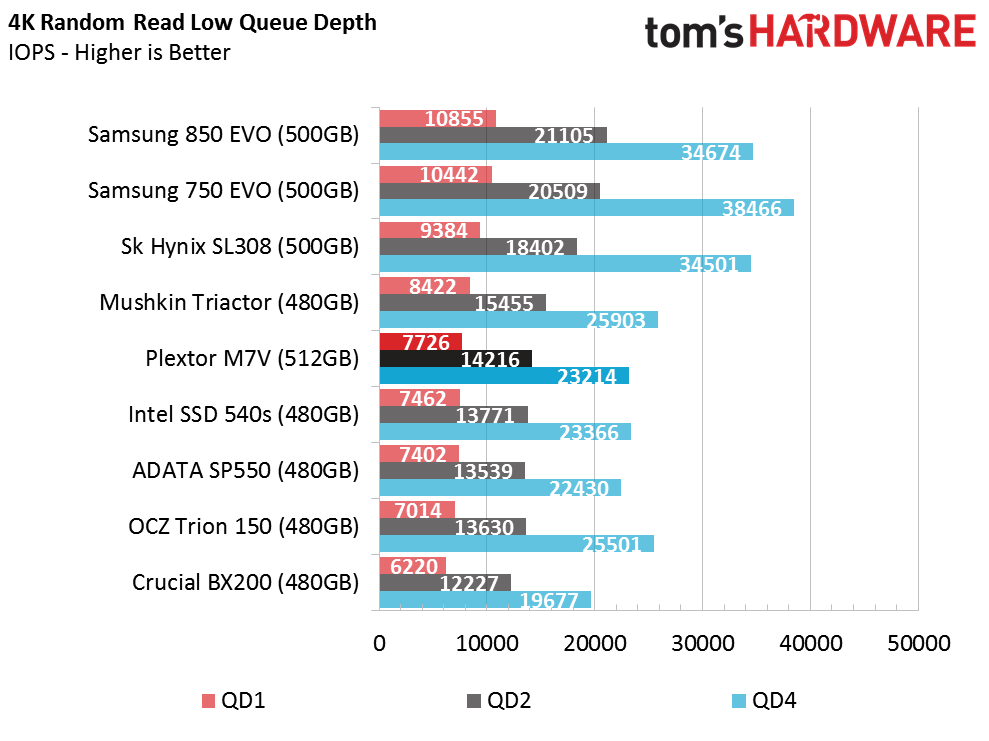
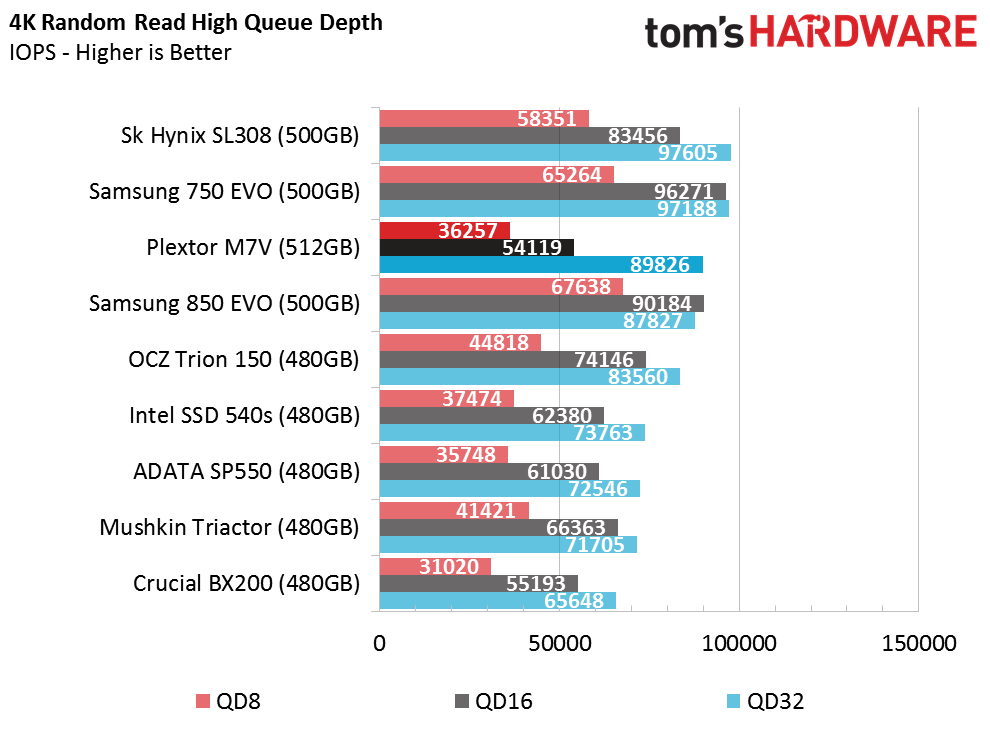
The Plextor M7V delivers average random-read performance in our group of entry-level and mainstream products. The drive scales well up to QD2 (nearly doubling performance). Progress slows after that, but there's a large jump between QD16 and QD32.
Random Write Performance
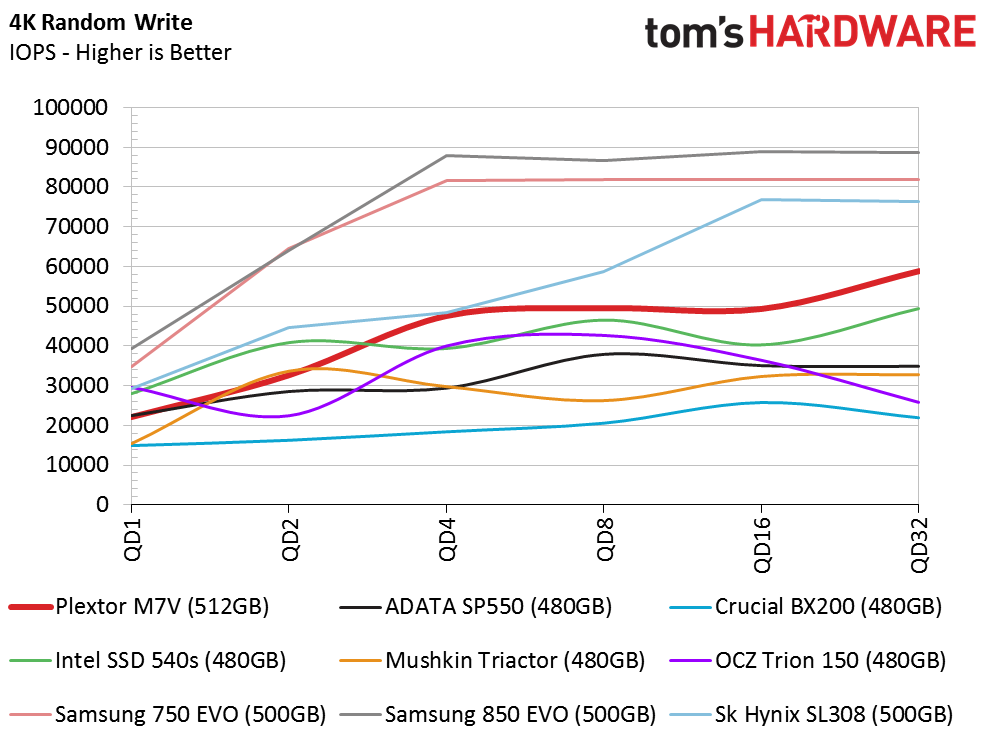
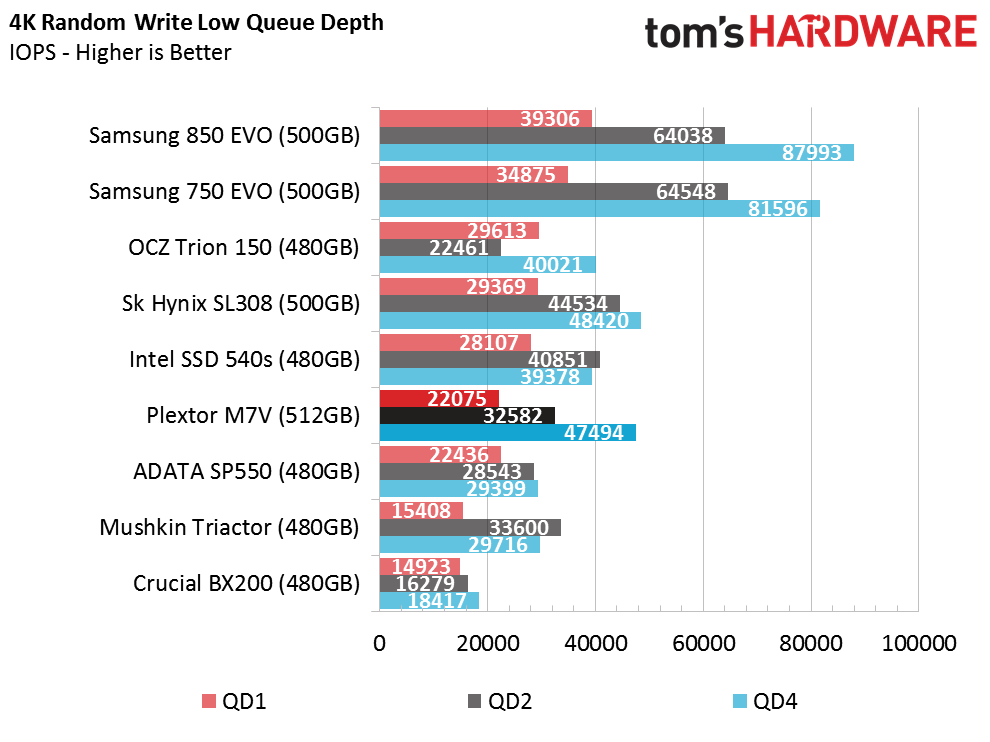
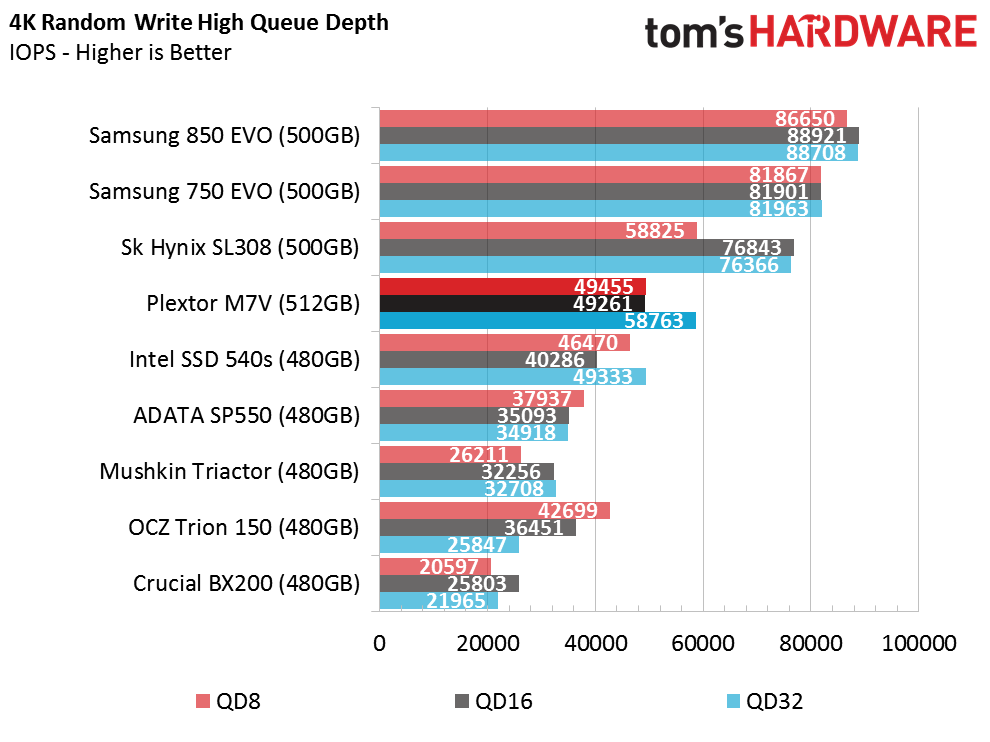
The M7V's small-block random write performance at low queue depths is lacking. The performance is hundreds of times better than a hard-disk drive, but it is less than average compared to other popular entry-level SSDs.
Current page: Product Tour And Performance
Prev Page Specifications And Features Next Page Benchmarks
Chris Ramseyer was a senior contributing editor for Tom's Hardware. He tested and reviewed consumer storage.
